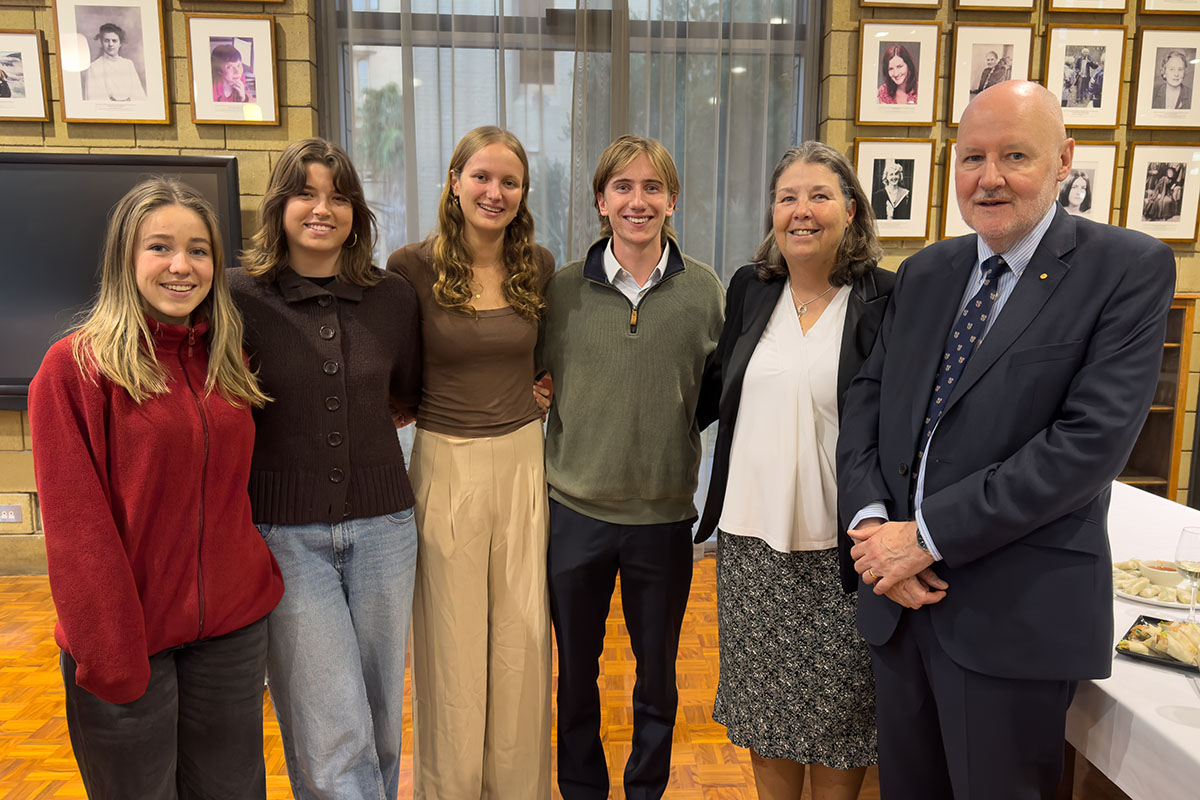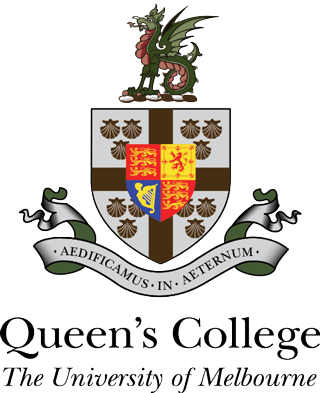Reclaiming Public Discourse: Freedom of Expression on Campus and in Communities

Above: Students with Dr Leila Brammer and Dr Stewart Gill OAM Master
In the current climate of increasing tensions among groups and individuals there is great need to foster vigorous, inclusive, and productive discourse in classrooms, on campuses, and through all levels of civic life. The 2024 Sugden Oration titled ‘Reclaiming Public Discourse: Freedom of Expression on Campus and in Communities’ delivered by Sugden Fellow, Dr Leila Brammer on Tuesday 26 March, was thought provoking, and timely.
Dr Brammer is Director of Outreach and Instructional Development, Parrhesia Program for Public Discourse at the University of Chicago. She established a nationally recognised civic learning and engagement curriculum and a community-based public deliberation and dialogue program.
Dr Brammer made clear the importance of discourse.
“Discourse allows us to connect and create, it is all we have to connect with others, and it’s all we have to create new answers to our pressing challenges. When we have polarised issues and entrenched positions the majority are not going to get involved because they see it as something ugly.”
Healthy public discourse starts with understanding.
“An absolute foundation of entering into discourse in the community with others who differ from us is understanding. I always tell students the best thing you can learn is how to be wrong. This requires intellectual curiosity, I have to seek out those who differ or disagree with me because I’m curious about the nature of the world, and what they might be able to teach me. I am going to do so with a degree of intellectual humility, I might be wrong, or maybe not quite right, there’s something I can learn from every interaction. Often, we take a stand first, before we understand the issue.”
The second step is starting to examine and test ideas.
“The rigorous testing and refining of ideas necessary for pursuing knowledge and advancing democracy depends on the ability to seek out and engage multiple perspectives, differences, and disagreements. We need to ask ourselves, ‘Which perspectives seem to coalesce? Which perspectives make the most sense in helping me understand this?’ Then ‘Can I create a nugget, a truth out of all of these?’”
Dr Brammer sees the way forward occurs when broadening conversation from a two-way debate to wider discourse.
“I have created a prism, taking it from two sides, to adding a third or fourth idea. When expanding, we have to change the mode in which we engage. When we are stretched into two positions, we totally obliterate all sorts of other opportunities that are out there. This type of discourse is not enabling us to flourish, it actually divides and entrenches us. The vast majority of people live somewhere in the middle..”
Caroline Berg (2nd year Science/Engineering) gained a great deal from listening to Dr Brammer.
“The topic of Dr Brammer’s oration was extremely relevant as a young person engaging in discussions with many new people in completely new settings. Dr Brammer presented a clear, quietly revolutionary way for us to all improve our listening, discussion, advocacy, and understanding. I will carry these learnings with me for a long time, and I’m very grateful for the opportunity I had to attend.”
Chloe Campbell (1st year Biomedicine) was similarly inspired.
“The concept applies to academia, difficult conversations with family, polarising societal debates, and conflict from differing views on all levels. Dr Brammer succinctly demonstrated the need for freedom of speech to allow society to grow. It stems from individual conversations and understanding of others’ differences, then flows onto the ability to have these wider conversations in communities that involve everyone’s voice, not just the loudest.”
